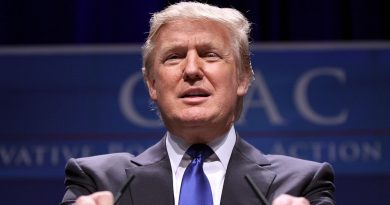Nicaragua Signs Paris Climate Accord, Leaving U.S. Isolated
By Judy Koren
Staff Writer
The Paris Climate Accord, also referred to as the Paris Agreement, recently saw a new member join the monumental intergovernmental pact. Nicaragua, a country which originally declined membership, changed its position; making it the 196th country that pledged to sign the agreement.
The Paris Agreement, according to The United Nations Framework on Climate Change (UNFCC), is “to strengthen the global response to the threat of climate change.” In order to do so, the agreement aims to keep the global temperature rise below 2 degrees Celsius above pre-industrial levels. According to the UNFCC, parties that ratify the treaty are required to report regularly on their emissions and on their implementation efforts.
In 2015, when the Paris Agreement was first signed, Nicaragua abstained on the grounds that the agreement did not go far enough to tackle the issue of climate change, reports BBC. According to BBC, Nicaraguan President, Daniel Ortega, also argued “the accord did not put sufficient onus on wealthy countries to tackle climate change.” As of a couple weeks, President Ortega decided to sign the agreement, beginning the process to be a member of the pact.
The question has been frequently asked as to why President Ortega decided to suddenly join the accord. Vice President Rosario Murillo commented, “It is the only instrument we have in the world that allows the unity of intentions and efforts to face up to climate change and natural disasters” The Guardian says.
President Ortega referenced the global scientific consensus on climate change as a motivating factor in his actions, according to BBC. It is also thought that due to the devastation from recent hurricanes in the Caribbean, Nicaragua feels threatened, causing them to consider taking more drastic action to limit rising temperatures, reports The Guardian.
With Nicaragua signing onto the historical pact, it leaves the United States isolated as the only country who has not yet signed. U.S. President Donald Trump claimed he was motivated to abstain from signing due to the “draconian financial and economic burdens,” he claimed the agreement would imposes on the U.S according to The Guardian.
Sticking to his “America First” campaign promise, President Trump would only consider reentering the pact on terms that are more favorable to our country.
This decision, which has led to outcry from environmentalists and multiple foreign leaders around the world, puts the U.S. under a spotlight. Andrew Light, senior fellow at the WRI Global Climate Program, says “the U.S. position is of concern to some countries, not only for its impact on emissions but also because of implications for climate security and development aid,” reports the DW.
As an economic, military, and political beacon, the pronouncement questions the stance the U.S. has towards climate change and the significance of almost 200 countries signing an agreement. The question still stands of whether the Trump administration will change their position on the Paris Climate Agreement now that Nicaragua is joining. Leaving the U.S. isolated, it is up for debate regarding if the administration will continue to abstain since no nation can officially withdrawal until November 2020.


